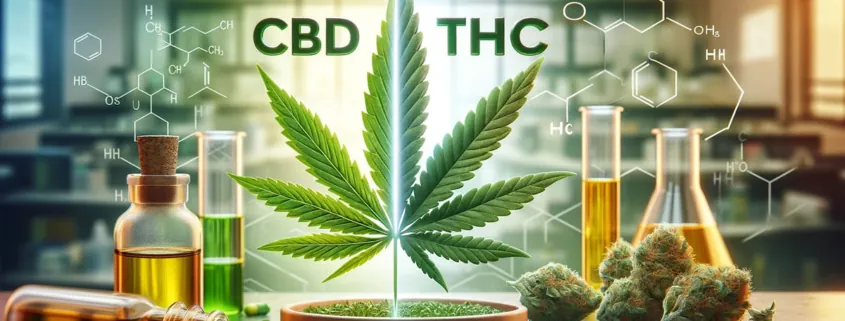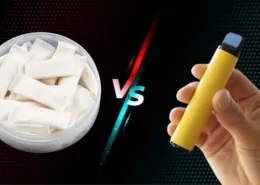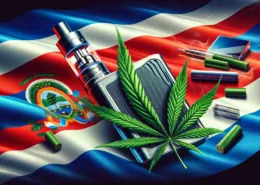CBD vs. THC: Key Differences & Effects Explained
As the interest in cannabis and its derivatives continues to grow, it is essential for consumers to understand the key differences between the two most prominent compounds found in cannabis: cannabidiol (CBD) and delta-9-tetrahydrocannabinol (THC). While both CBD and THC have shown promise in alleviating symptoms and potentially treating various medical and mental health conditions, it is crucial to approach these substances with caution and a thorough understanding of their unique properties, potential benefits, and risks.
The Importance of Consulting a Healthcare Professional
Before delving into the intricacies of CBD and THC, it is essential to emphasize the importance of consulting a healthcare professional before trying any products containing these compounds. The legal status of CBD and THC products varies from state to state, and it is crucial to ensure that you are operating within the bounds of the law. Furthermore, a qualified medical professional can provide personalized guidance on whether these substances are appropriate for your specific health needs and can help monitor any potential side effects or interactions with existing medications.
What are CBD and THC
CBD and THC are two of the most well-known and extensively researched cannabinoids found in cannabis plants. While they share some similarities in their molecular structure, there are significant differences in their psychoactive properties, legal status, and potential health benefits.
CBD: The Non-Psychoactive Cannabinoid
Cannabidiol, or CBD, is the second most prevalent chemical compound found in cannabis plants. It can be derived from both hemp and marijuana plants, with hemp-derived CBD containing only trace amounts of THC (less than 0.3% by dry weight). One of the most notable characteristics of CBD is that it is non-psychoactive, meaning it does not produce the “high” typically associated with marijuana use.
CBD interacts with the body’s endocannabinoid system, which plays a crucial role in regulating various physiological processes, including mood, appetite, sleep, and immune function. By modulating the activity of certain receptors and neurotransmitters, CBD may offer a range of potential health benefits without the intoxicating effects of THC.
THC: The Psychoactive Compound
Delta-9-tetrahydrocannabinol, or THC, is the primary psychoactive ingredient found in cannabis plants. It is responsible for the euphoric “high” that people experience when consuming marijuana. THC works by activating the brain’s reward system, stimulating the release of dopamine, a neurotransmitter that plays a vital role in regulating mood, pleasure, and motivation.
THC can be consumed in various forms, including smoking marijuana, or through capsules, edibles, tinctures, and oils. While THC is known for its recreational use, it has also been extensively studied for its potential medicinal properties, particularly in the management of chronic pain, nausea, and appetite stimulation.
CBD vs. THC: Key Differences Explained
Both CBD and THC influence the endocannabinoid system (ECS), a complex system within our bodies that plays a crucial role in maintaining homeostasis, impacting processes like mood, sleep, appetite, and more. While they share this commonality, their actions differ significantly.
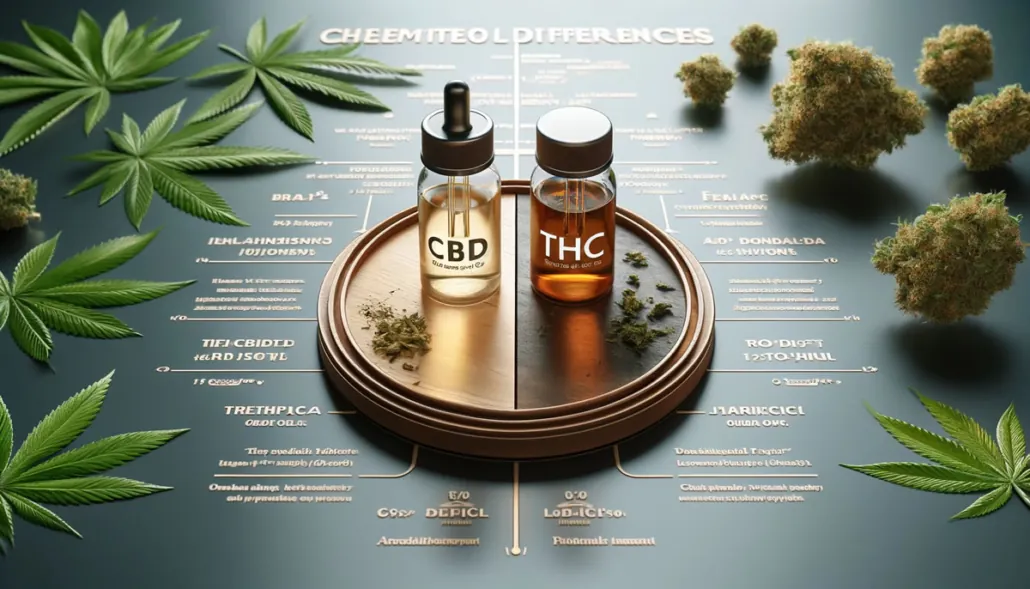
| Feature | CBD | THC |
|---|---|---|
| Psychoactive Properties | Non-psychoactive (does not induce a high) | Psychoactive (induces a high) |
| Source | Typically hemp, but can be derived from marijuana | Derived from marijuana |
Psychoactive Effects
The contrasting effects of CBD and THC stem from their interaction with different brain receptors. CBD does not bind with the receptors responsible for psychoactive effects, meaning it won’t get you high. THC, on the other hand, directly engages these receptors, leading to the characteristic marijuana high.
Chemical Structure
Interestingly, CBD and THC share a similar chemical structure – 21 carbon atoms, 30 hydrogen atoms, and two oxygen atoms, mirroring the body’s natural endocannabinoids. However, the subtle variations in their molecular arrangement are responsible for their distinct effects. These variations dictate how they bind with receptors and subsequently influence bodily functions.
Sourcing
While CBD can be extracted from both hemp and marijuana, hemp is the preferred source for CBD products to minimize THC content. Conversely, THC is exclusively derived from marijuana.
Potential Health Benefits and Therapeutic Applications
Although research on the health benefits of CBD and THC is still in its early stages, there is a growing body of evidence suggesting that these cannabinoids may offer therapeutic value for a wide range of conditions. However, it is essential to note that more rigorous, large-scale clinical trials are needed to fully understand the efficacy, safety, and long-term effects of CBD and THC use.
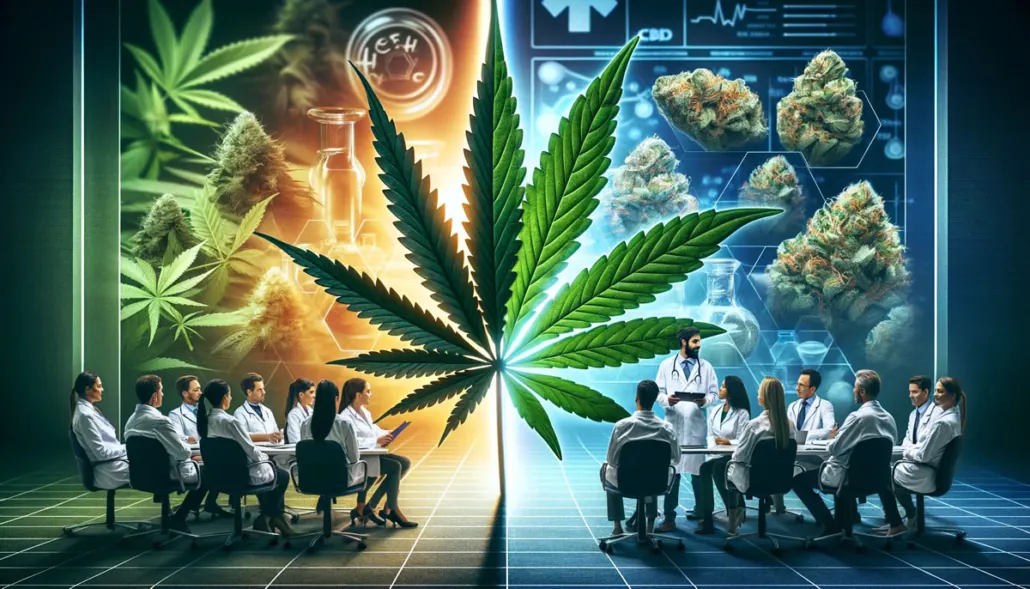
CBD: Potential Benefits and Uses
CBD has gained significant attention for its potential to alleviate symptoms associated with various health conditions, including:
- Anxiety and Depression: Studies suggest that CBD may have anxiolytic (anti-anxiety) and antidepressant properties, potentially helping to reduce symptoms of anxiety disorders and depression.
- Chronic Pain and Inflammation: CBD has been shown to have analgesic and anti-inflammatory effects, making it a promising option for managing chronic pain conditions such as arthritis, fibromyalgia, and neuropathic pain.
- Epilepsy and Seizures: CBD has demonstrated efficacy in reducing the frequency and severity of seizures, particularly in treatment-resistant forms of epilepsy such as Dravet syndrome and Lennox-Gastaut syndrome.
- Sleep Disorders: CBD may help improve sleep quality and duration, potentially benefiting individuals with insomnia and other sleep disturbances.
- Skin Conditions: Topical application of CBD-infused products may help alleviate symptoms of certain skin conditions, such as acne, psoriasis, and eczema, due to its anti-inflammatory and antioxidant properties.
THC: Potential Benefits and Uses
THC has been studied for its potential medicinal applications, particularly in the management of:
- Chronic Pain: THC has been shown to have analgesic properties, making it a potential option for managing chronic pain conditions, including neuropathic pain and pain associated with multiple sclerosis.
- Nausea and Vomiting: THC has antiemetic effects, making it useful in reducing nausea and vomiting associated with chemotherapy and other medical treatments.
- Appetite Stimulation: THC is known to stimulate appetite, which can be beneficial for individuals undergoing cancer treatment or those with wasting syndromes such as HIV/AIDS.
- Muscle Spasticity: THC may help reduce muscle spasms and stiffness, particularly in individuals with multiple sclerosis and spinal cord injuries.
- Glaucoma: THC has been shown to lower intraocular pressure, potentially slowing the progression of glaucoma, an eye condition that can lead to vision loss.
CBD and THC for Pain Relief: A Synergistic Approach
Both CBD and THC demonstrate efficacy in pain management. THC, due to its psychoactive properties, may offer quicker relief, while CBD’s anti-inflammatory properties contribute to long-term effectiveness. Interestingly, some studies suggest that combining CBD and THC could enhance pain relief compared to THC alone.
Potential Side Effects and Risks
While CBD and THC are generally considered safe when used at recommended dosages, they can still produce some unwanted side effects, such as:
- Changes in mood and appetite
- Drowsiness and fatigue
- Nausea and dizziness
- Anxiety or paranoia (more common with THC)
It is also important to be aware of the potential long-term effects of cannabis use, particularly when it comes to THC. Regular marijuana use has been associated with impaired short-term memory, altered judgment, and impaired coordination. Some research also suggests that marijuana use may alter brain development and lead to cognitive impairment, especially when used during adolescence.
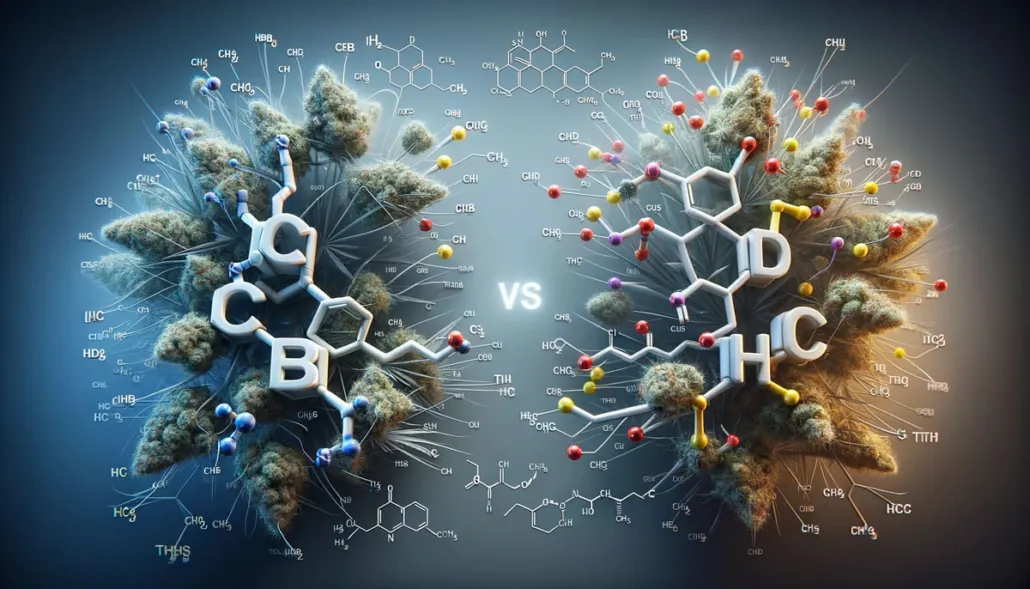
Legality and Availability
The legal status of CBD and THC products varies by state and at the federal level. As of May 2024, 24 states and Washington, D.C. have legalized the recreational use of marijuana, while 38 states have enacted policies allowing medical marijuana and THC products to be prescribed by licensed healthcare providers. (Souce: State Medical Cannabis Laws)
Under the 2018 Farm Bill, hemp-derived CBD products containing less than 0.3% THC by dry weight are legal at the federal level. However, state laws regarding CBD can vary, so it is essential to check your local regulations before purchasing or using any CBD products.
When it comes to obtaining CBD or THC products, it is crucial to purchase from reputable, licensed retailers and manufacturers. This helps ensure that the products are of high quality, accurately labeled, and have undergone appropriate testing for purity and potency.
Choosing the Right Product
When considering the use of CBD or THC products for health and wellness purposes, it is essential to take into account factors such as individual health status, desired effects, product formulation, and potential interactions with existing medications or medical conditions.
Consulting with a knowledgeable healthcare professional, such as a doctor or pharmacist specializing in cannabis medicine, can provide valuable guidance in selecting the most appropriate product and dosage for your specific needs.
It is also important to be aware that CBD and THC products can vary significantly in terms of quality, purity, and potency. Researching the reputation of the manufacturer, reading third-party lab reports, and choosing products that have undergone rigorous testing can help ensure that you are getting a safe and effective product.
For example, when choosing a CBD oil, it is important to understand the difference between isolate, broad-spectrum, and full-spectrum products:
- Isolate: Contains only pure CBD, with no other cannabinoids or compounds from the hemp plant.
- Broad-spectrum: Contains a range of cannabinoids and other beneficial compounds, but with the THC removed.
- Full-spectrum: Contains all the compounds found in the hemp plant, including trace amounts of THC (less than 0.3%).
Forms and Consumption
Both THC and CBD are available in various forms, catering to different preferences and needs.
THC can be consumed through traditional methods like smoking marijuana, but it also comes in other forms:
- Oils
- Tinctures
- Sprays
- Vape products
- Edibles (gummies, chocolates, etc.)
- Beverages infused with marijuana oil
Similarly, CBD is available in diverse forms:
- Oils for vaping (though caution is advised due to potential health risks associated with vaping)
- Topicals like lotions and salves (for localized effects)
- Oral forms like tinctures, oils, capsules, and sprays
- Edibles such as gummies, candies, and beverages
FDA-Approved Medications
While cannabis itself lacks FDA approval for treating medical conditions, some medications containing CBD or THC have received approval.
Examples include:
- Epidiolex (CBD-based) for treating seizures associated with Dravet syndrome and Lennox-Gastaut syndrome (severe epilepsy types).
- Marinol and Syndros (dronabinol, a synthetic THC) for alleviating chemotherapy-induced nausea and vomiting.
- Cesamet (nabilone, a THC-like synthetic substance) for addressing appetite loss and weight loss linked to chemotherapy and HIV/AIDS.
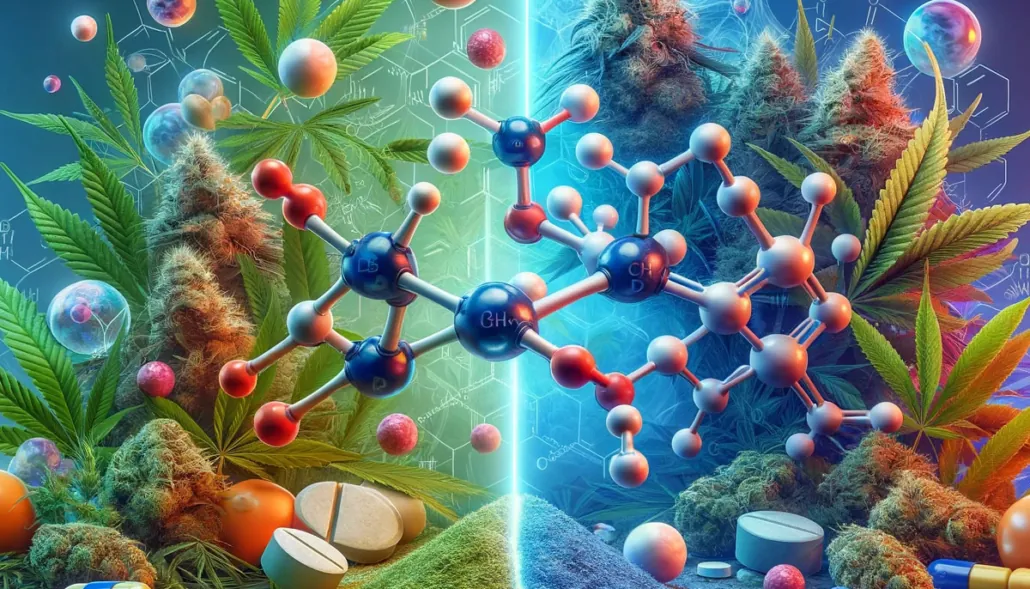
The Bottom Line
CBD and THC are two distinct cannabinoids found in cannabis plants, each with unique properties and potential health benefits. As interest in these compounds continues to grow, it is crucial for individuals to stay informed about the key differences between them, their legal status, and the importance of selecting high-quality products from trusted sources.
By understanding the essential aspects of CBD and THC, including their potential therapeutic applications, individuals can make well-informed decisions about their use and the role they may play in supporting overall health and well-being. As always, it is recommended to consult with a qualified healthcare professional before incorporating CBD or THC into your health regimen.
- How to Choose Safe CBD for Dogs Without Guesswork - August 4, 2025
- Texas Senate Passes Revised THC Ban Bill (SB 5) - August 4, 2025
- Best Delta-8 THC Carts of 2025: Top 5 Vapes Reviewed - July 16, 2025

